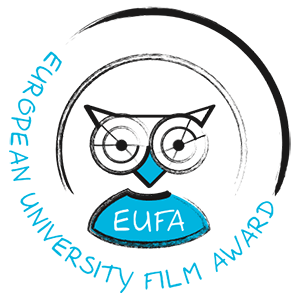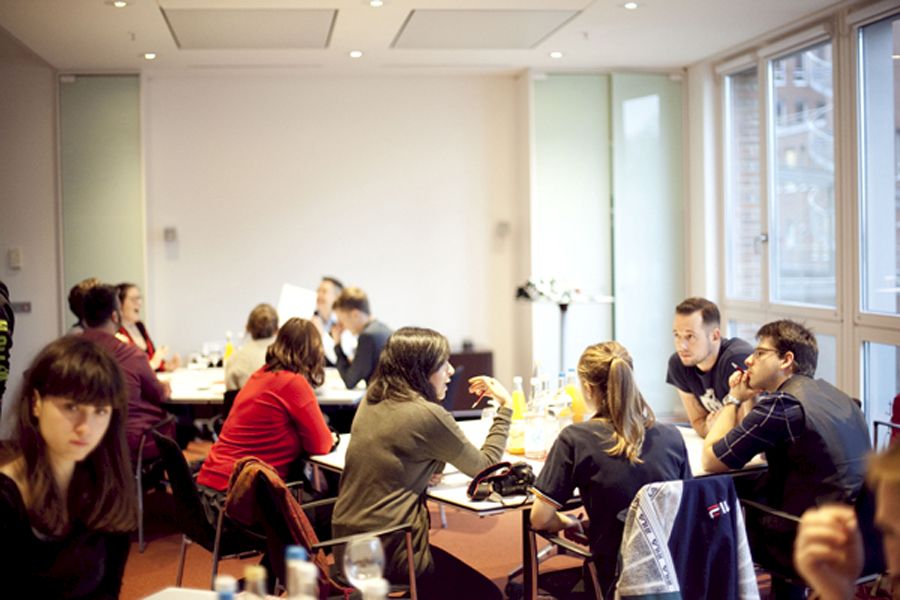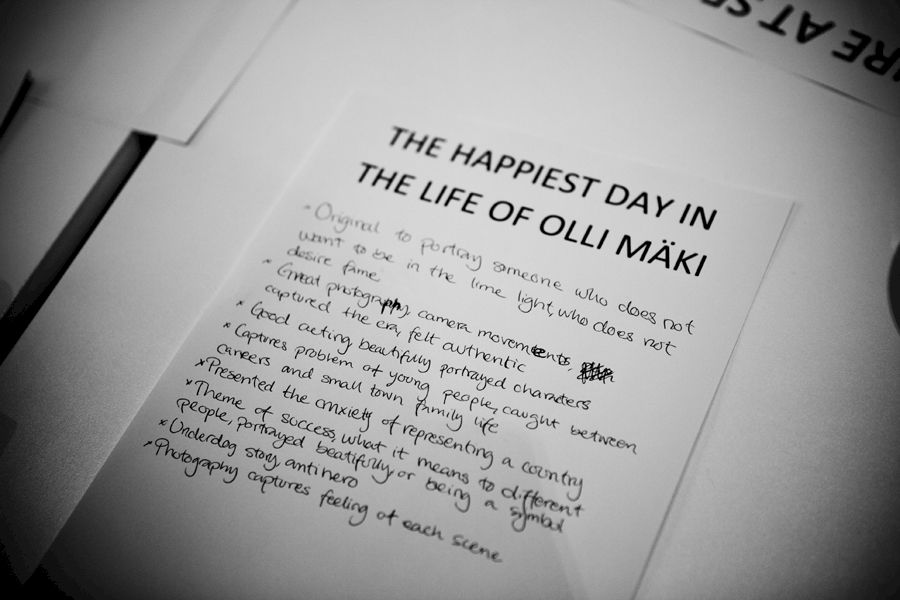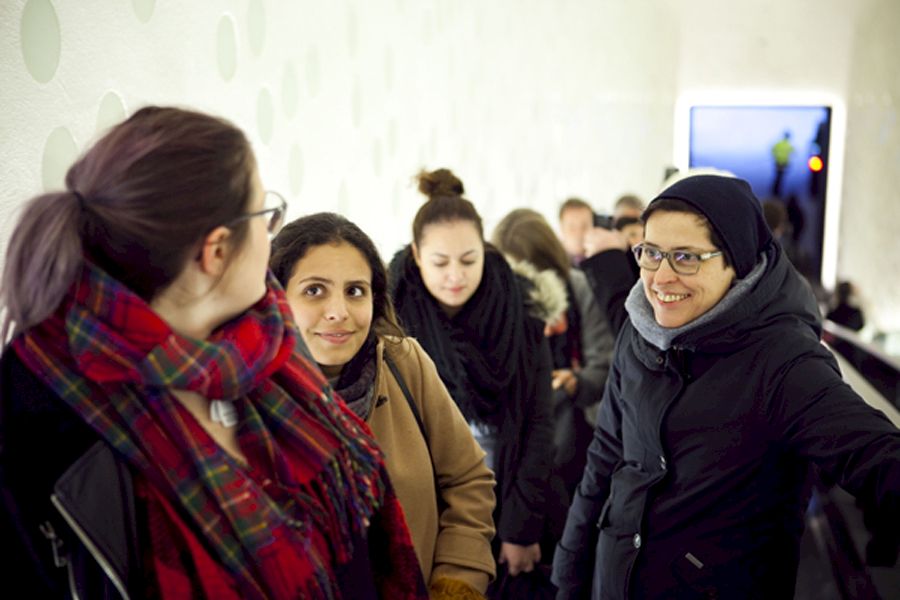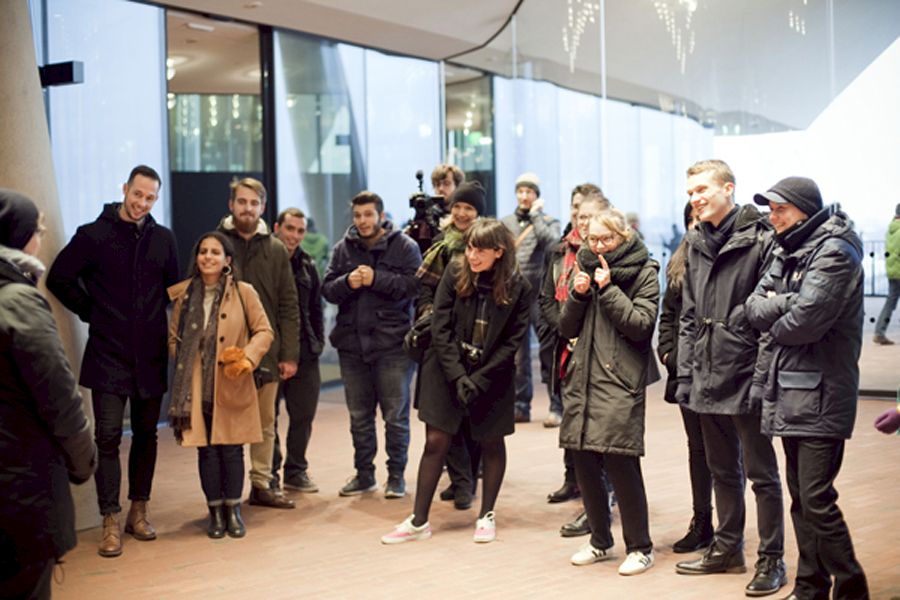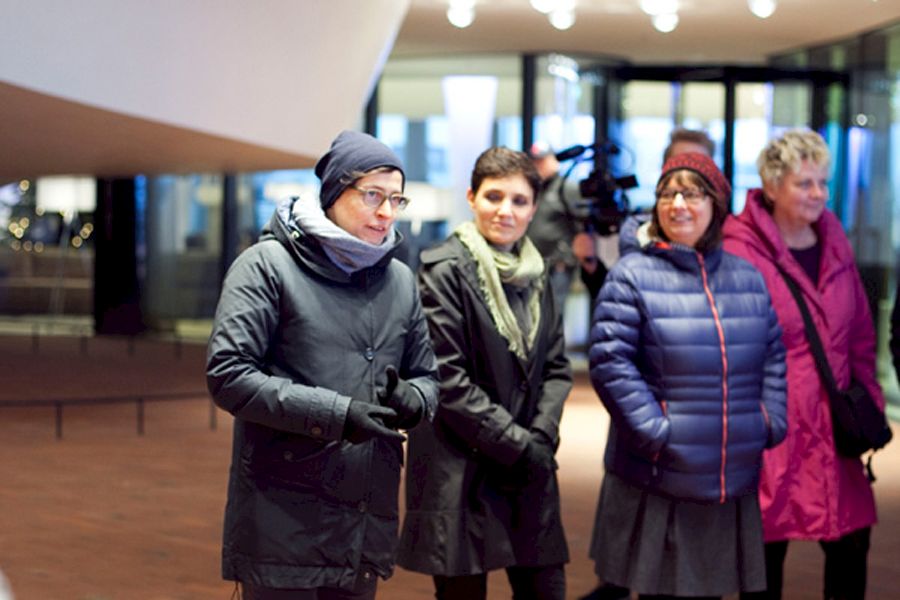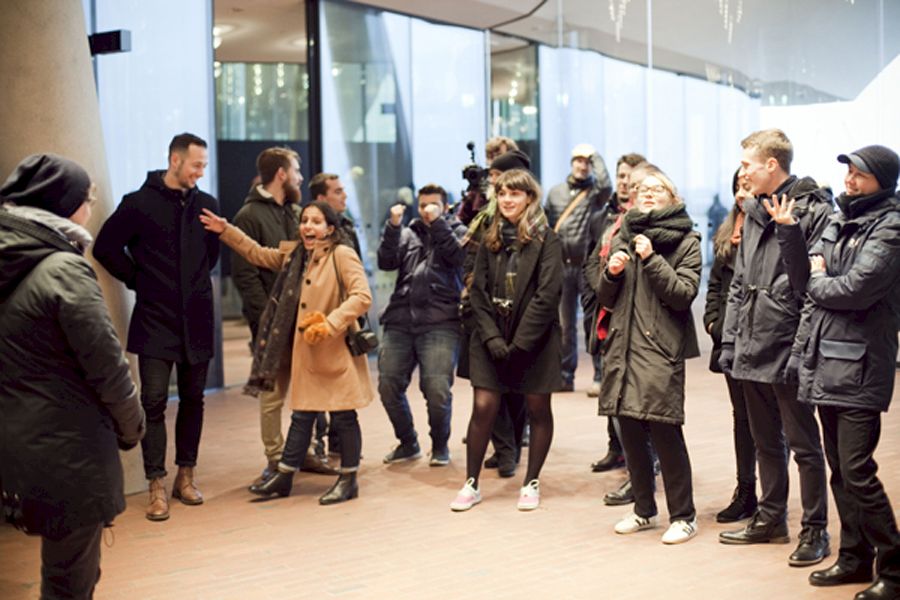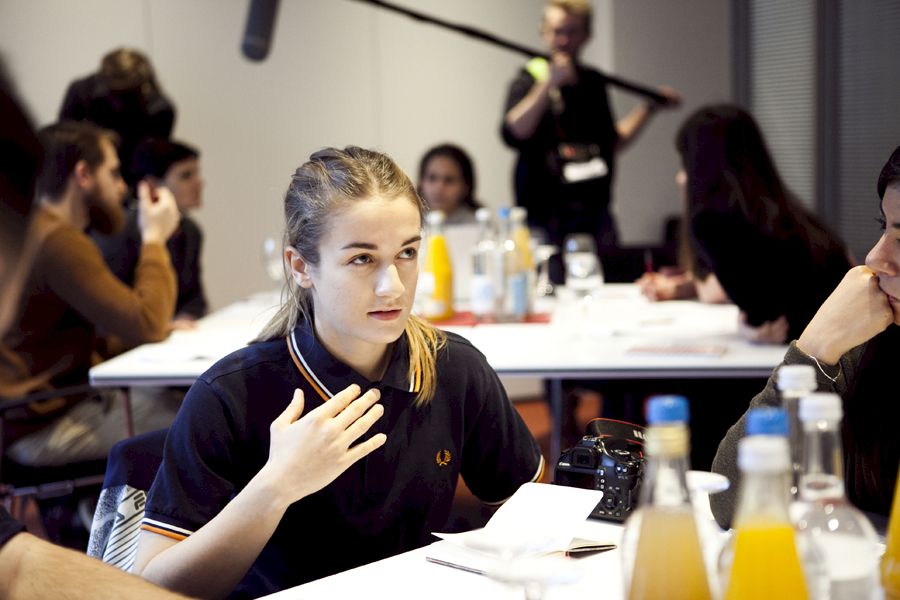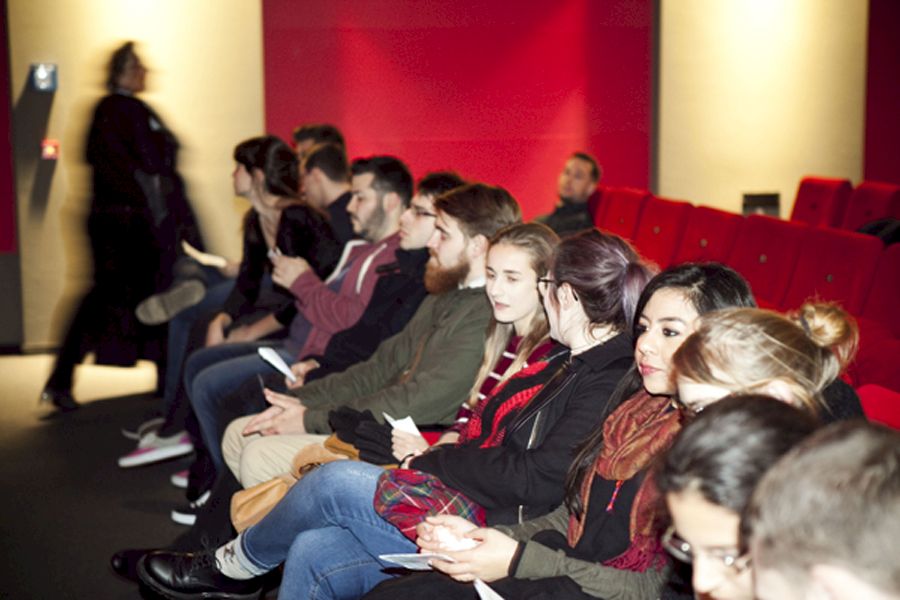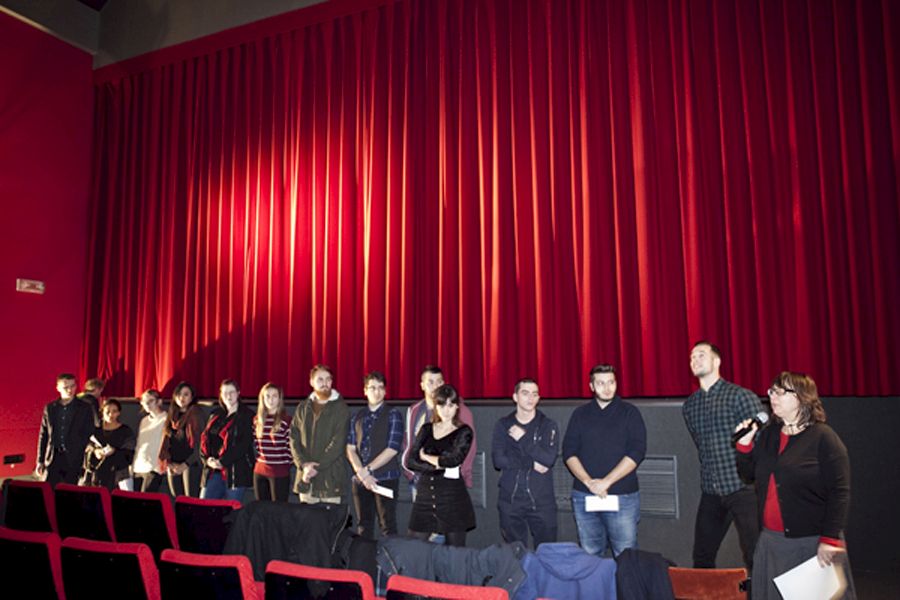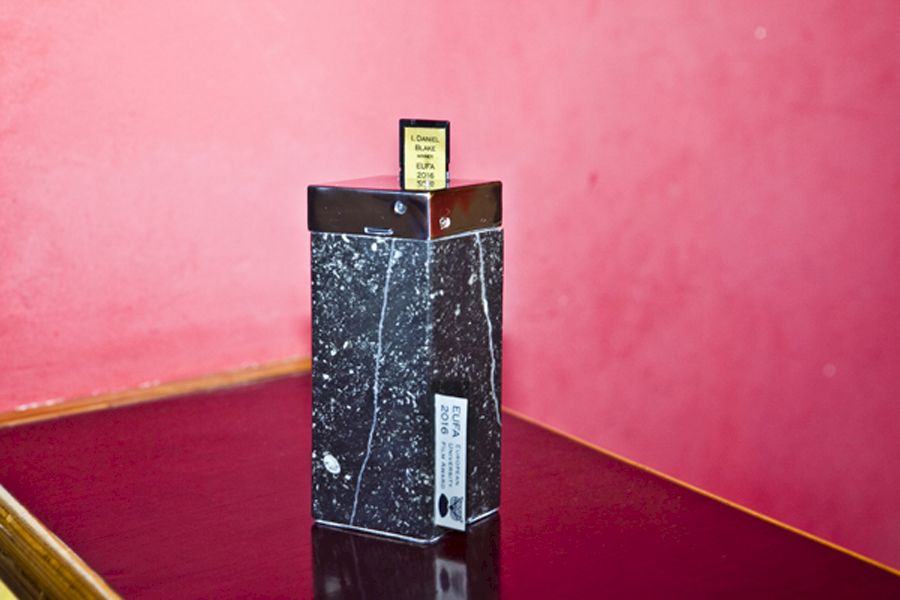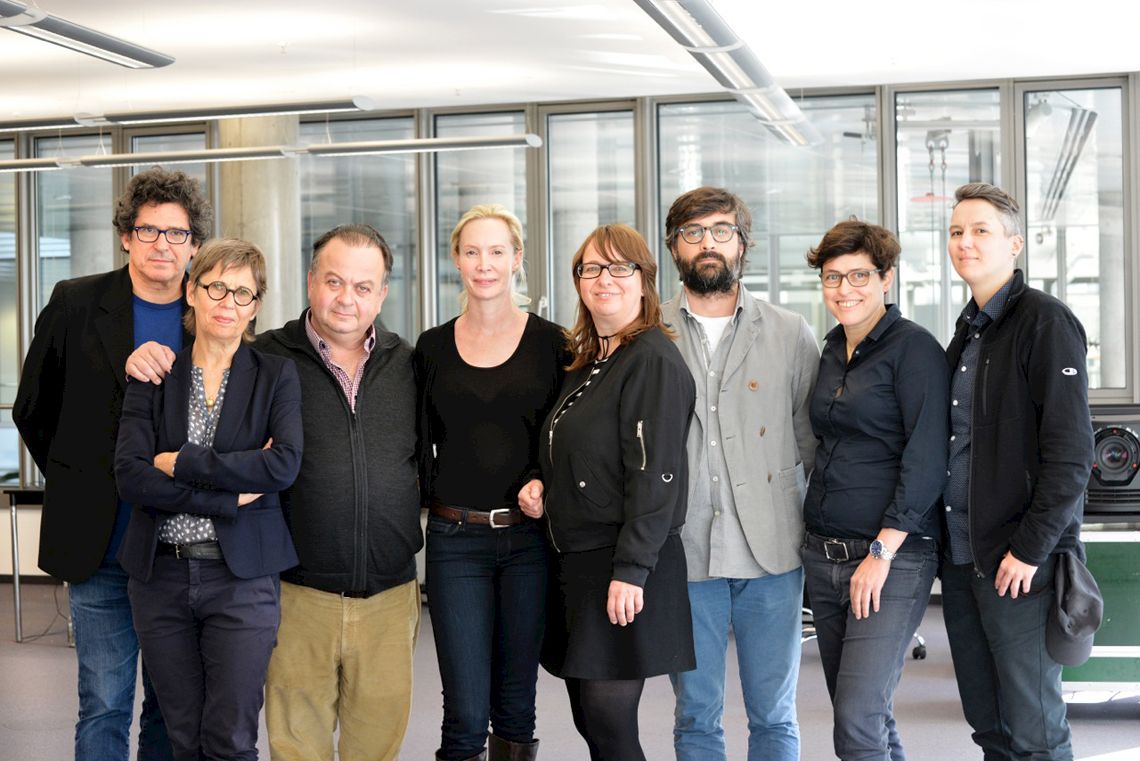
1st EUFA Debate in Hamburg 2016
Filmfest Hamburg and the European Film Academy launched the 1st European University Film Award (EUFA) in early 2016, which is presented and voted by European university students. The aim of this initiative is to involve a younger audience, to spread the "European idea" and to transport the spirit of European cinema to an audience of university students. It shall also support film dissemination, film education and the culture of debating.
In its inaugural year, 13 universities from 13 different European countries were participating:
- Czech Republic | Prague: Charles University
- France | Paris : Université Sorbonne Nouvelle Paris 3
- Germany | Rostock: University of Rostock
- Greece | Mytilini (Lesbos): University of the Aegean
- Hungary | Budapest: Pázmány Péter Catholic University
- Ireland | Cork: University College Cork
- Italy | Udine: University of Udine
- Netherlands | Utrecht: Utrecht University
- Poland | Lodz: University of Lodz
- Portugal | Lisbon: University of Lisbon
- Sweden | Växjö: Linnaeus University
- Turkey | Istanbul: Kadir Has University
- United Kingdom | Liverpool: John Moores University

Out of the 50 feature films and 15 documentaries eligible for the European Film Award 2016 a committee consisting of Feo Aladag (director, Germany), Dagmar Brunow (academic, Linnaeus University, Sweden), Luis Martinez Lopez (journalist, EL MUNDO, Spain) and Patrick Sobelman (producer, France) decided and announced a shortlist of five films nominated for the European University Film Award in early October at Filmfest Hamburg.
The Five Nominated films were:
- FIRE AT SEA (Fuocoammare) by Gianfranco Rosi. Italy/France 2016. Documentary
- GRADUATION (Bacalaureat) by Cristian Mungiu. Romania/France/Belgium 2016. Fiction
- I, DANIEL BLAKE by Ken Loach. United Kingdom/France 2016. Fiction
- THE HAPPIEST DAY IN THE LIFE OF OLLI MÄKI (Hymyilevä Mies) by Juho Kuosmanen. Finland/Germany/Sweden 2016. Fiction
- TONI ERDMANN by Maren Ade. Germany/Austria 2016. Fiction
From then on between October and early December the five nominated films were viewed and discussed by students in film and media studies classes at the participating 13 European universities. Each film was analyzed, evaluated and passionately discussed over the course of two months and in the end each institution voted by a point system for their top three films. These results were sent in for the final vote.
One student representative for each of the 13 universities came to Hamburg for a two-day deliberation meeting that took place 7/8 December. During those two days the students discussed all films together, exchanged arguments on the top three films that won the most votes across all universities and finally voted for the final winner.
Photos by Kathrin Brunnhofer and Video Clip by Bastian Worrmann and Daniel Bendig.
The jury statement:
After watching five incredible films, each with their own specific voice, it was very hard to pick a winner since all of them were driven by contemporary issues present throughout Europe and beyond.
After heated discussions, we came to the decision, by a small margin, that the winner of the first ever European University Film Award is... I, DANIEL BLAKE by Ken Loach.
I, DANIEL BLAKE is a necessary critique of the obsolete governmental apparatus that not only resonates in the United Kingdom, but in Europe as whole. With a strong critique, Ken Loach has the courage to show what the media and the general ideology have been ignoring. It makes us question not only the tendency in society but also the connection between our existence and citizenship.
Thanks to its straight forward narration, I, Daniel Blake manages to show how bureaucracy and the State are involved in our lives. It puts it in a way that is accessible for all audiences to understand.
Thanks to our wonderful students for their passion for Europen Cinema.

The 1st EUFA Edition 2016 was supported by the Körber Foundation, The Alfred Toepfer Stiftung F.V.S. and Creative Europe Desk Hamburg and realised in co-operation with NECS–European Network for Cinema and Media Studies and Prix collégial du cinéma québécois (PCCQ).
